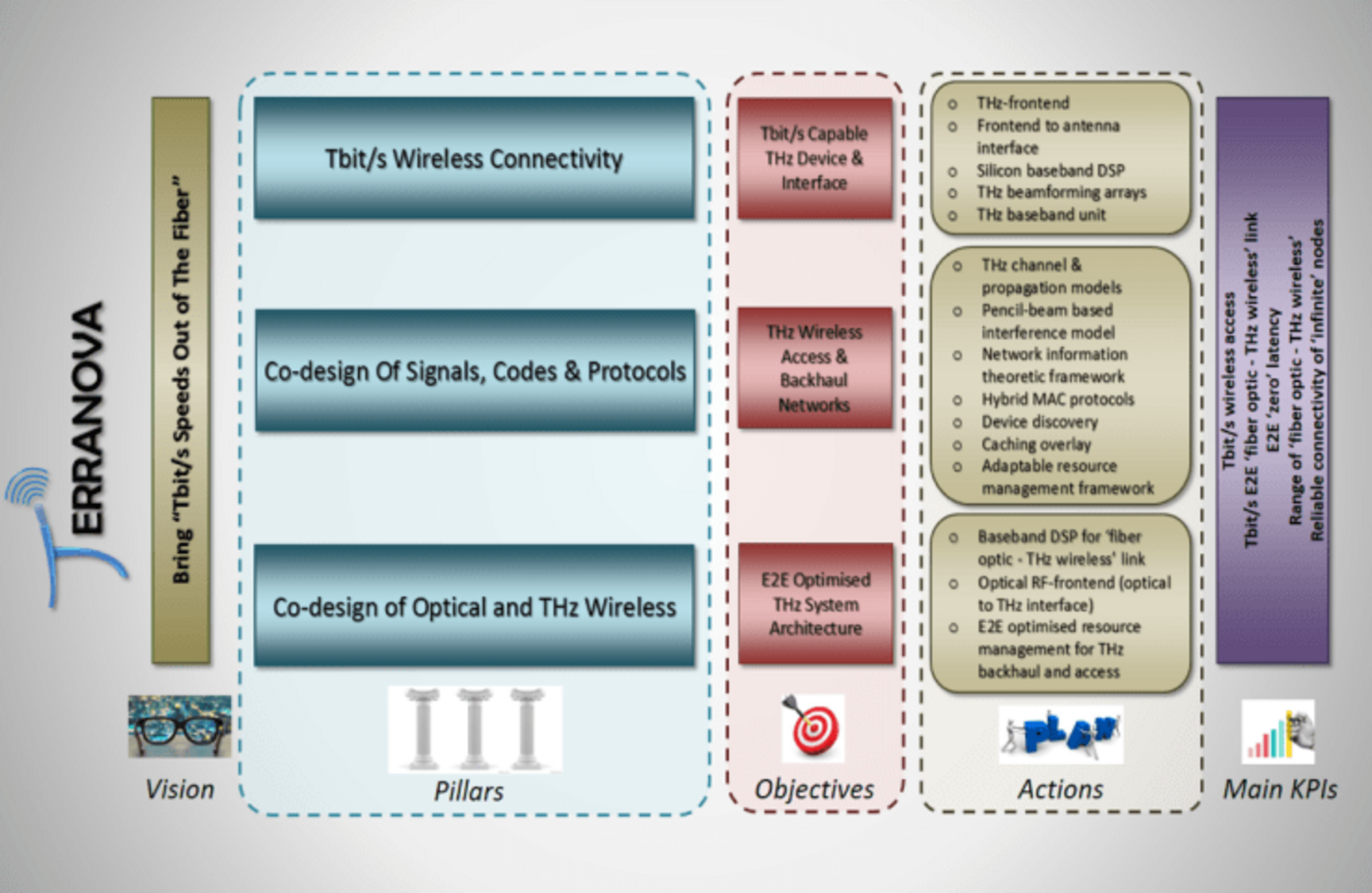
Wireless Terahertz System Architectures for Networks Beyond 5G
Co-funded by EU Horizon 2020
Duration: July 2017 - March 2020
HTML5 Video Player by VideoJS

TERRANOVA envisions to extend the fibre-optic systems’ Quality of Experience to wireless links by exploiting frequencies above 275 GHz. This means reliable connectivity at extremely high data rates in the Tbit/s regime and almost ‘zero-latency’ for networks beyond 5G.
The consortium will employ breakthrough technology concepts, namely:
- The design of baseband signal processing for the complete optical and wireless link,
- The development of THz wireless frontends and their integration with photonic components.
A network information theory framework, caching techniques, channel and interference models, all tailored to the particularities of the THz regime and extremely large bandwidths will achieve the successful co-design of components and network solutions.
The project will enable the use of higher-order modulation schemes, pencil beam antenna arrays and multiple-access schemes to address user access and backhaul application scenarios at THz frequencies.
The innovations and technologies will be demonstrated by means of a proof-of-concept experimental platform validating and assessing the feasibility and performance of the concept.
Applications
TERRANOVA will act as enabler for a vast range of future applications in beyond 5G systems. The usage scenarios can be categorized based on their critical performance metrics all with the common requirement of Tbit/s rate.
In particular, TERRANOVA application scenarios are:
- THz wireless access for cyber-physical systems (e.g. intelligent transport and industry 4.0)
- THz wireless local access (e.g. ultra-dense indoor/office applications such as virtual presence, 3D printing)
- THz wireless backhauling